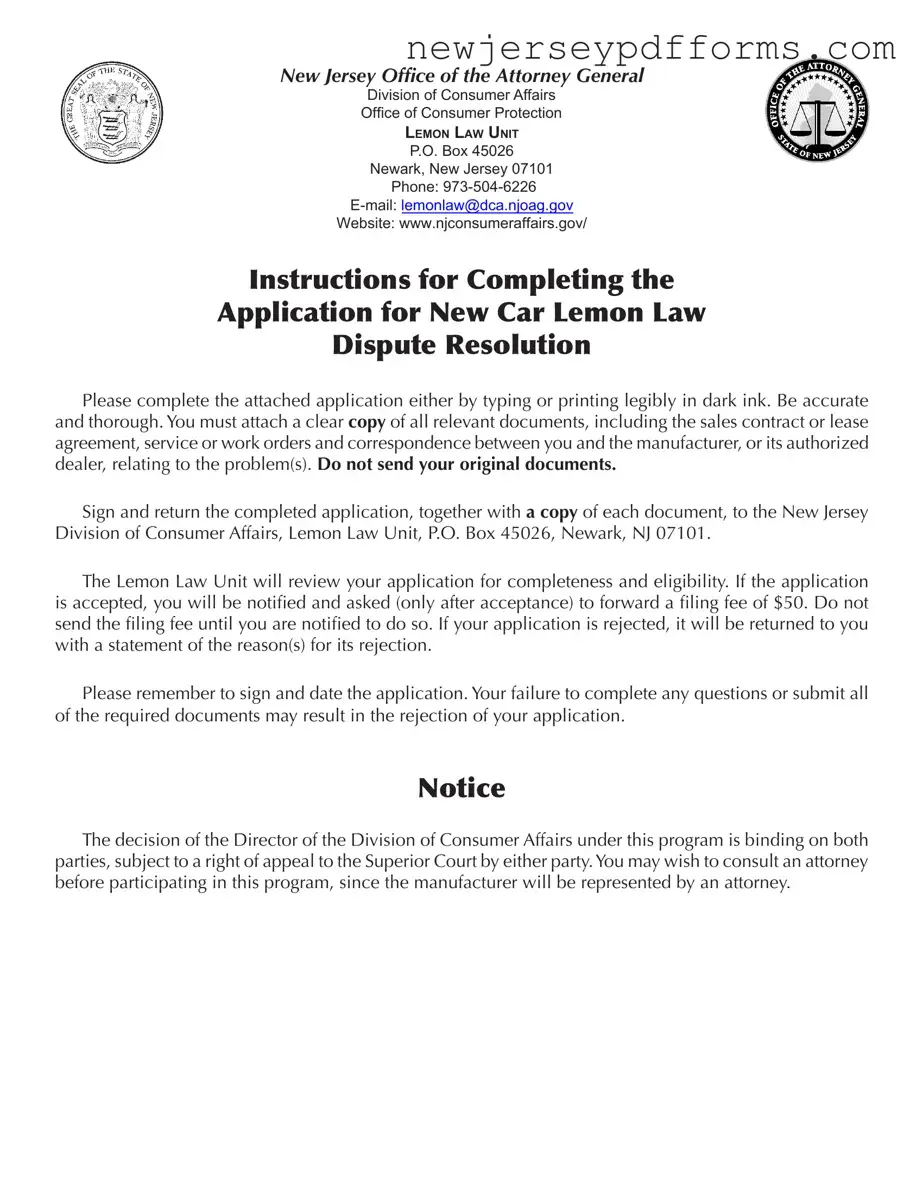1. What is the purpose of the New Jersey Lemon Law Application form?
The New Jersey Lemon Law Application form is designed for consumers who believe their new vehicle has a defect that substantially impairs its use, value, or safety. This form initiates the dispute resolution process with the Lemon Law Unit of the New Jersey Division of Consumer Affairs, allowing consumers to seek a remedy for their vehicle issues.
2. How should I complete the application form?
The application must be completed either by typing or printing legibly in dark ink. It is crucial to provide accurate and thorough information. Attach clear copies of all relevant documents, such as the sales contract, service orders, and any correspondence with the manufacturer or dealer. Do not send original documents, as they will not be returned.
3. What documents do I need to submit with my application?
You must attach copies of essential documents, including the sales or lease agreement, service records, and any correspondence related to the vehicle's issues. Additionally, include any receipts for related costs, such as towing or rental fees. Missing documents may lead to the rejection of your application.
4. What happens after I submit my application?
Once your application is submitted, the Lemon Law Unit will review it for completeness and eligibility. If accepted, you will receive a notification asking for a $50 filing fee. Do not send the fee until you receive this notification. If your application is rejected, it will be returned with an explanation of the reasons for rejection.
5. Can I appeal the decision made by the Lemon Law Unit?
Yes, the decision made by the Director of the Division of Consumer Affairs is binding on both parties, but either party has the right to appeal to the Superior Court. It is advisable to consult an attorney before participating in this program, as manufacturers are typically represented by legal counsel.
6. What should I do if my vehicle has multiple defects?
If your vehicle has experienced multiple defects, you should document each issue in detail within the application. Provide a chronology of repair attempts for each defect, including dates, mileage, and the duration the vehicle was out of service. This information will assist in the evaluation of your case.
7. Is my information kept confidential?
While your personal information may be subject to public disclosure, the completed complaint form is considered a government record. Information may only be disclosed after an investigation is completed. It is important to be aware that your application and its attachments will become part of the public record.
8. What if I have participated in arbitration for the same issue before?
If you have previously participated in arbitration regarding the same nonconformity, you must disclose this in your application. Provide the date of the final arbitration decision and indicate whether you accepted that decision. This information is critical for the Lemon Law Unit to assess your current application.

